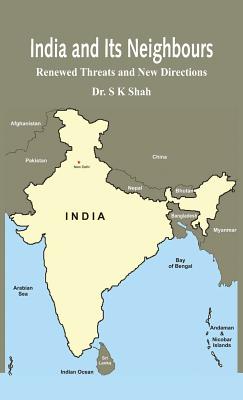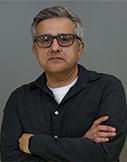

 Alpha Edition
Alpha Edition
India and Its Neighbours: Renewed Threats and New Directions


Key Metrics
- Aquil Shah
- Alpha Edition
- Hardcover
- 9789386367501
- 8.5 X 5.5 X 0.81 inches
- 1.16 pounds
- Political Science > International Relations - Diplomacy
- English
 Secure Transaction
Secure TransactionBook Description
The changing scenarios in the India's neighbourhood and in the global order over the past decade have made India to take a close look at her national interests. The bipolar world has given way to a non-polar world in which several new powers have emerged. India has to formulate policy options about her foreign and security policies. The policy makers have to think about India's relations with some of the important countries in her immediate neighbourhood, develop plausible scenarios for each of them, and propose options for consideration by the concern authorities. The Indian policymakers will have to think about the likely challenges and the opportunities that may emerge within next ten years. India's foreign policy has always regarded the concept of neighbourhood as one of widening concentric circles, around a central axis of historical and cultural commonalities. The guiding principles of India's Foreign Policy have been founded on Panchsheel, pragmatism and pursuit of national interest. In a period of rapid and continuing change, foreign policy must be capable of responding optimally to new challenges and opportunities. India has formal diplomatic relations with most nations, as the world's second most populous country, the world's most-populous democracy and one of the fastest growing major economies in the world. With the world's tenth largest military expenditures, tenth largest economy by nominal rates and third largest by purchasing power parity; India is a regional power, and a potential Superpower. It is India's growing international influence that increasingly gives it a more prominent voice in global affairs. Narendra Modi took the oath of office as India's 14th prime minister. Among his first decisions as head of government - in fact, it was set in motion even before the formal start of his tenure - was an unconventional act of diplomacy: inviting eight foreign leaders of neighbouring countries to attend his inauguration. While many commentators claimed before his election that Modi would be a nationalist hardliner, a foreign affairs novice, or simply more of the same on external affairs, the prime minister instead proved more active and (perhaps less surprisingly) more pragmatic than many had expected. In two years, Modi has displayed an instinctive understanding of power in the conduct of world affairs, and he has also benefited from being less politically hamstrung than his predecessor Manmohan Singh, with whose worldview he in fact shares much in common. This book contains the fundamental and basic information of the subject.
Author Bio
Aqil Shah is a political scientist and the Wick Cary Associate Professor of South Asian Politics in the Department of International and Area Studies at the University of Oklahoma. He is also a non-resident scholar at the Carnegie Endowment for International Peace.
His research interests include democratic transitions, military coups, institutional norms and South Asian security issues. His work has appeared in or is forthcoming in International Security, Perspectives on Politics, Democratization, Journal of Commonwealth & Comparative Politics, the Journal of Democracy, Foreign Affairs and Asian Survey as well as several edited volumes. He is the author of The Army and Democracy: Military Politics in Pakistan (Harvard University Press, 2014).
Dr. Shah holds a PhD in Political Science from Columbia University and an M Phil in International Development from Oxford University, where he was a Rhodes Scholar. He has been a Hewlett Research Fellow at the Center for Development, Democracy and the Rule of Law at Stanford University and a post-doc fellow at the Society of Fellows, Harvard University.
Having previously taught at Dartmouth and Princeton, he offers courses on comparative democratization, civil-military relations, the politics of developing countries & South Asian International Relations. Prior to his academic career, Dr. Shah was a policy advisor in the Asia-Pacific Governance Program of the United Nations Development Program, and a senior analyst in the South Asia office of the International Crisis Group.
Source: The University of Oklahoma
Videos
No Videos
Community reviews
Write a ReviewNo Community reviews